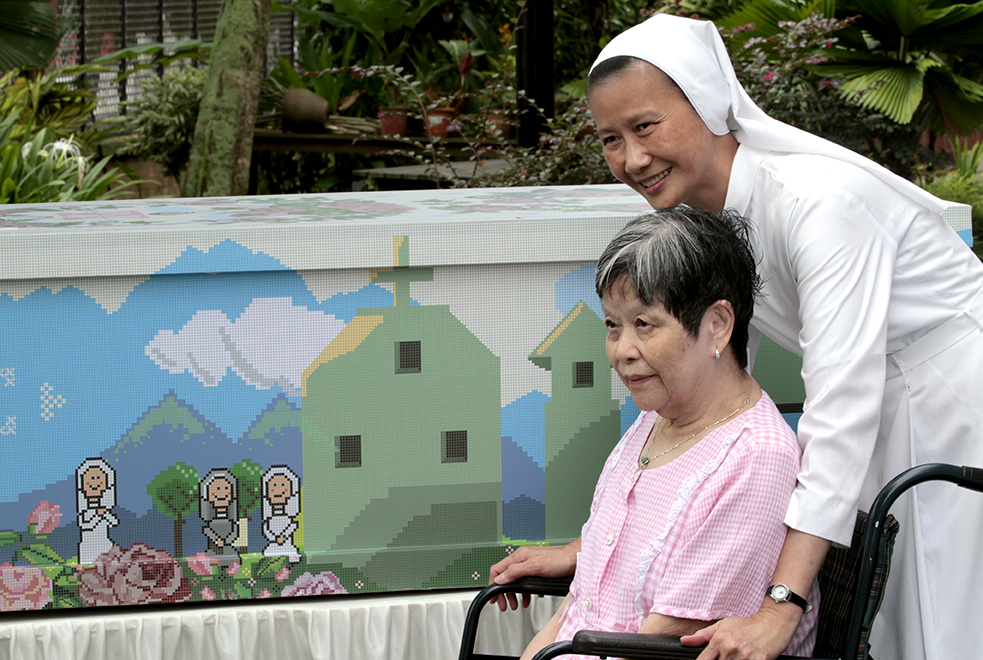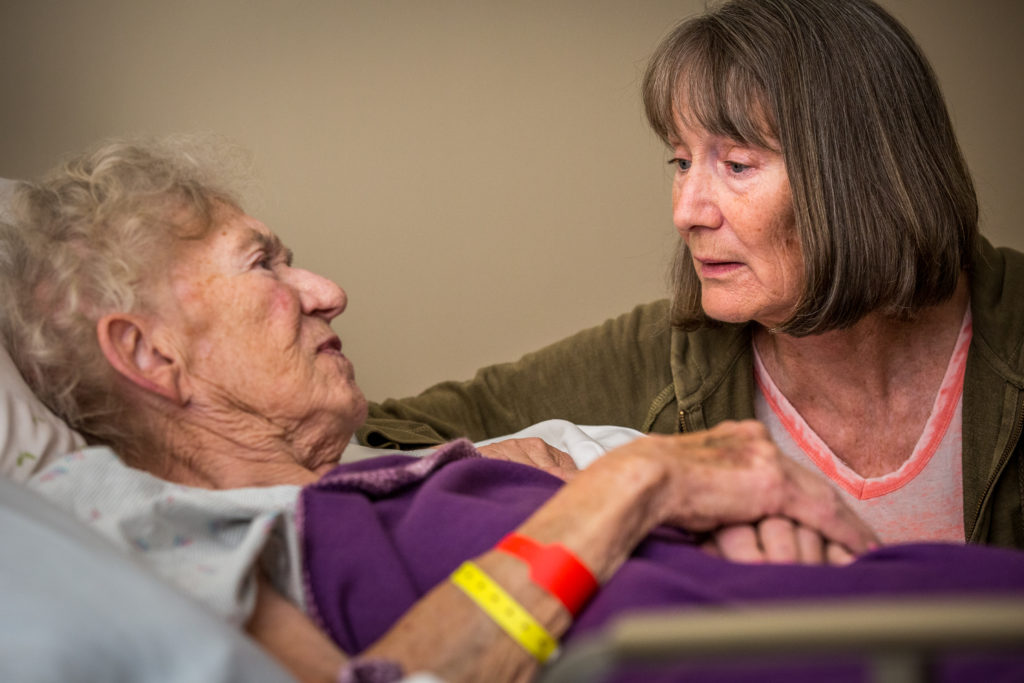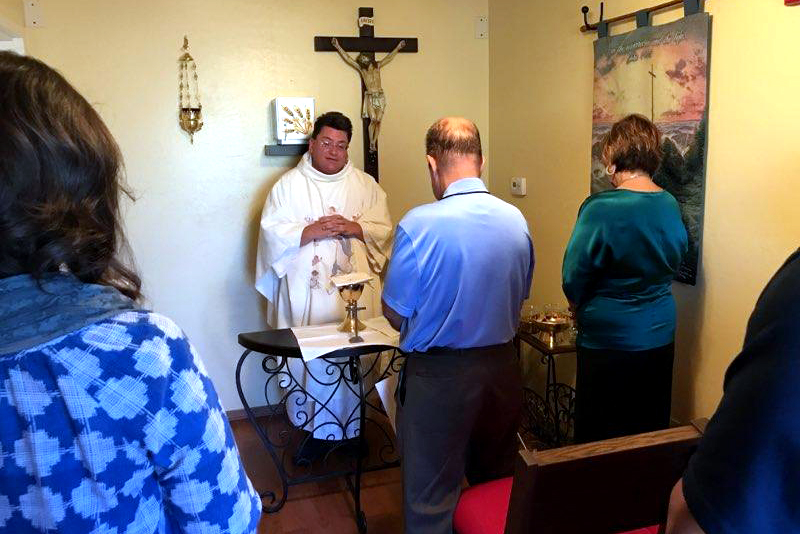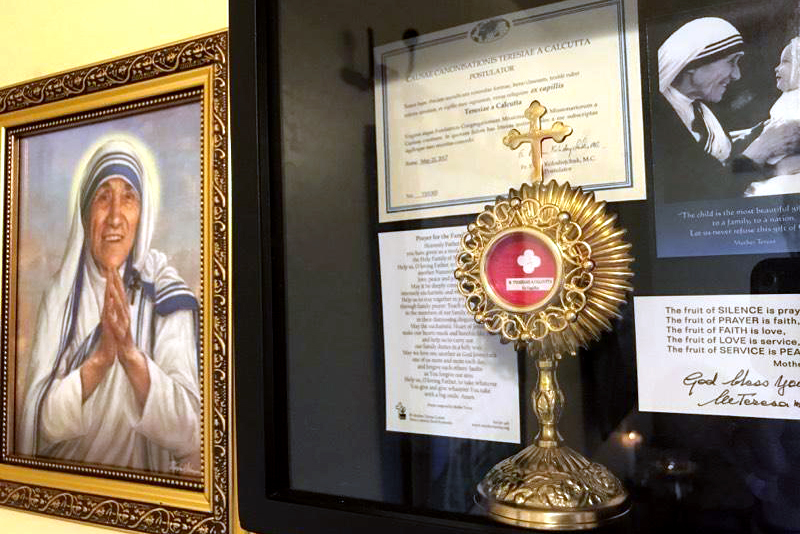
Office of Medical Ethics
The Medical Ethics Board was instituted to assist the bishop through providing clinical insights and theological perspectives for understanding complex medical ethics questions.
When Carol Pavlak’s 90-year-old father was nearing his final weeks of life, she knew just where she wanted to turn for the last days he would spend on earth.
“I felt he would be in good hands with a Catholic hospice, knowing if they practiced my faith they would not just feed him drugs and let him go but treat him with dignity,” the 66-year-old Pavlak explained.
But a place that would fill both Carol and her father’s wishes meant meeting specific needs, and that narrowed the choices to essentially one, although that hospice did receive the blessing of Bishop Thomas J. Olmsted to open a second entity in 2017.
A year prior, the bishop instituted a diocesan Medical Ethics Board with Fr. Ignatius Mazanowski, FHS, as director. The goal was to provide “clinical insights and theological perspectives for understanding complex medical ethics questions.” In addition to making recommendations to the bishop on medical-ethics issues that may arise, the board assists in developing relationships with health care institutions within the Diocese of Phoenix; not the least of which are hospices.
Fr. Ignatius said his office is eager to help those institutions fulfill the Church’s guiding principles on respecting life in all services, including hospice, and would help any that requested such guidance.
“That is one of the big reasons I have been given the role of director of medical ethics,” Fr. Ignatius stated in an email, adding that he is always available to consult on end-of-life or other ethical issues.
“I’ll be happy to help you understand and come to a clear perspective on the Catholic Church’s teachings,” Fr. Ignatius said. “I also am available to help guide a secular hospice through the process of becoming a Catholic hospice recognized by the Diocese of Phoenix.”

The requirements for diocesan approval are rigorous. But they have to be in order to put the diocese’s and the Church’s name behind a service that is very personal and must allow a Catholic the ability to live by his or her faith.
“Of the 77 Ethical and Religious Directives for Catholic Health Care Services, about a dozen (Directives 55 through 66) apply more directly to care for the seriously ill and dying,” he said. “The principles laid out in the ERDs protect the dignity and sanctity of life, and they guide us in applying Catholic moral and ethical principles to important decisions that Catholics face at the end of life.”
Specifically, the Catholic Church has a clear perspective on when to withdraw hydration and nutrition, how much pain medicine can be prescribed at the end of life, when or if artificial means of life support can be withdrawn, when organ donation is allowed and the reasons why euthanasia is not allowed.
“A Catholic hospice is committed to following these principles,” Fr. Ignatius stated, adding that secular hospices aren’t guaranteed to follow these principles.

Inside a hospice
At present, the diocese has only one recognized hospice.
Mesa-based Americare Hospice and Palliative Care has operated 14 years and serves all of Maricopa County as well as areas slightly beyond county borders. Its second entity, Holy Cross Hospice, opened last year.
Both operate “according to our faith; our beliefs as Catholics,” said Americare founder and Administrator Christine Minch.
“We never do anything to hasten the deaths of our participants,” added Bobi Martinez, Americare’s Catholic Mission Coordinator and a certified grief recovery specialist.
IV hydration, antibiotics, treatment of infections, laboratory testing, X-rays, a wound-care nurse, physical therapy, nutritional supplements and speech therapy for swallowing assistance are examples.

“We do take patients with feeding tubes. There are many (hospices) that would not admit those patients, but [here] …, it would be considered vital care. We truly see our mission as taking every patient individually until God decides to call them home,” Minch said.
Although most patients are cared for at home, or in a skilled-nursing or assisted-living facility, the company also recently remodeled its inpatient unit to add the presence of the Blessed Sacrament to its St. Mother Teresa Chapel, a small, eight-person room with kneelers, a mural and a relic.
Pavlak said the services, including the chapel, allowed her father to die with dignity while the family observed its Catholic faith, even members who don’t regularly practice.
My father was ready to go, and he let us know. This was a dignified death; peaceful — the way anyone would want to go,” she said.






